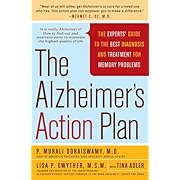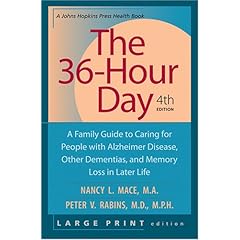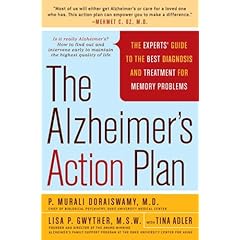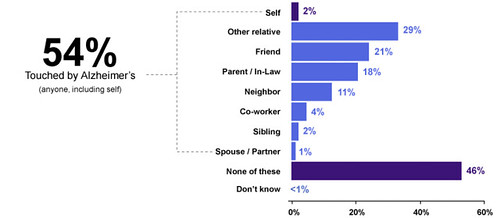We are on a three day roll. No pee pee. No pee pee pajamas. No pee pee underwear. No pee pee pants......
 Bob DeMarco
Bob DeMarcoAlzheimer's Reading Room
Editor
My mother suffered from urinary incontinence long before I moved to Delray Beach to take care of her.
My sister Joanne was the first to notice the problem -- 8 or 9 years ago.
Subscribe to The Alzheimer's Reading Room--via Email
Urinary Incontinence (UI) is a stigmatized, underreported, under-diagnosed, under-treated condition that is erroneously thought to be a normal part of aging. One-third of men and women ages 30-70 believe that incontinence is a part of aging (National Institute of Health, NIH).
You could put everything I knew about urinary incontinence in a thimble before I started to focus on this problem. Reading and learning about the problem helped me come to the conclusion that we could do something about it. A little education is always helpful.
I want to make something clear. I did not arrive at this current solution to urinary incontinence over night. It took years.
Once we finally developed the current solution, it still took many months before it started to work effectively. Here is some good news. The solution is becoming more and more effective over time.
My solution is not perfect. It does not work every single day. It does not work every single night. I can say this with some confidence -- we no longer experience the flood. Now its more like the little tiny accident.
When we have a problem with incontinence during the day it usually happens because I am tardy or less than perfect in following the program.
If you decide to try this, it is going to be a lot of work. You will need to tailor my solution to fit you own needs or you own Alzheimer's sufferer.
If you are not ready to give this program everything you have to give -- you will likely end up frustrated, or quit.
If you make this work you will end up with a wonderful feeling of accomplishment, and frankly, keep more of your hair.
If you really want to solve the problem of urinary incontinence, I suggest you try a little role reversal.
If you were the one with Alzheimer's and urinary incontinence, how would you want to be treated?
Would you want to be yelled at? Treated like a baby? Would you want to listen to someone constantly complain about how you are peeing all over yourself?
Would you want to feel all those bad vibes being directed at you?
I tried many times to do something about incontinence over the years. All false starts. I gave up every time.
Finally, the problem was so bad that we were using 14 sets of pajamas and 24 panties. My mother was blowing through 3 pajama bottoms a night. Day time, same story with her cloths.
All I can say is, that is a lot of wash.
My mother was suffering from incontinence from day one.
I turned to everyone I knew. I listened to their ideas and advice. I turned to women of all ages.
Most of the advice centered around two solutions -- pads and adult diapers.
I have to laugh at myself now as I remember my first trip to the store. I figured I would go in and grab what I needed and get on with the task at hand. Keep in mind I am a man.
Well the aisle that contained these products in Walmart was gigantic. It just went on and on. I think I spent more than 30 minutes trying to figure out which might work for the problem at hand.
In a way, it was mesmerizing. Oddly, since I am a curious person it was interesting to me. Later I thought to myself, wow, this is one big problem.
I decided to try the adult diapers. At the mention of this, my mother pitched a fit.
I would get here to put the diaper on grudgingly. As soon as I wasn't looking she would take the diaper off.
If you are an Alzheimer's caregiver you can already imagine the things she was saying. Some of them not very nice.
Let me tell you what I was accomplishing -- I was making my mother miserable and mean. This in turn was making me miserable. The dreaded stomach ache.
Here is what I started to learn.
My mother did not believe there was a problem. It was embarrassing to wear a diaper. It was a sign of old age. If she didn't think there was a problem she would never accept the solution to the problem.
I thought to myself, well if there wasn't a problem I wouldn't wear a diaper either.
I gave up.
Here we were again. 14 pair of pajamas, 24 undies.
Now I decided to try the pads, the inserts. I thought I had a new idea that would work.
I convinced my mother's elderly friends to talk to my mother and tell her how they used the inserts, pads, and diapers. How it was a normal part of getting old. I coached them to be very enthusiastic and tell her how great this solution worked. I asked them to smile and laugh all the way.
My mother listened -- in went the pad.
They went home and out came the pad. I know they say that the person suffering from Alzheimer's will eventually get use to the pads and every thing will be beautiful.
I tried and I tried and I tried. I gave up.
I don't know why I didn't think of this sooner but I finally decided it was time for a trip into the Alzheimer's bunkhouse. I took my big newspaper pad with me and wrote -- problem incontinence -- right in the middle of the page with a big circle around it.
Then I started writing everything I could think of and remember about this problem all around that circle.
Then like magic like the light bulb went on in my head. I thought to myself, if I can do this I'll be like the Leonardo da Vinci of urinary incontinence (I'm Italian by the way).
To continue reading -- go here.
Popular articles on the Alzheimer's Reading Room
- Dementia and the Eight Types of Dementia
- H1N1 Flu Virus Everything You Need to Know
- Does the Combination of Aricept and Namenda Help Slow the Rate of Decline in Alzheimer's Patients
- Test Your Memory (TYM) for Alzheimer's or Dementia in Five Minutes
- Dimebon Connection Study
- The Metamorphosis of This Alzheimer's Caregiver (Part One)
- The Mini-Cog Test for Alzheimer's and Dementia
- Worried about Alzheimer's? Five Ways to Protect Yourself
- Is it Really Alzheimer's or Something Else?
- Alzheimer's Wandering Why it Happens and What to Do
- 50 Good Reasons to Subscribe to the Alzheimer's Reading Room Now
- World Health Care Spending and Performance Ranking by Country (Table)
- Urinary Incontinence -- How We Beat Alzheimer's Incontinence
- Are Alzheimer's Caregivers the Forgotten?
- A Simple Three Minute Test Can Detect the Earliest Stage of Alzheimer's Disease
- Wii a Useful Tool for Alzheimer's Caregivers
- 2009 Alzheimer's Disease Facts and Figures
Bob DeMarco is the editor of the Alzheimer's Reading Room and an Alzheimer's caregiver. The Alzheimer's Reading Room is the number one website on the Internet for news, advice, and insight into Alzheimer's disease. Bob has written more than 950 articles with more than 8,000 links on the Internet. Bob resides in Delray Beach, FL.
Original content Bob DeMarco, Alzheimer's Reading Room




